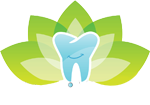How Long Does It Take to Recuperate from Tooth Extraction?
Tooth extractions are standard procedures performed on adults for various reasons. For example, you might need an extraction if you have a severely decayed tooth, gum disease, crowding, and injuries breaking the tooth below the gum line.
When recommended tooth extraction in Toronto, ON, you might wonder how much time you need to recover from the tooth removal procedure. You might also wonder how much pain you must endure during and after tooth removal and the recovery tips following the process.
This article answers your questions to help ease your concerns about tooth removal.
Why Do You Need a Tooth Extracted?
Dentists near you generally recommend an extraction if a large cavity has damaged your tooth beyond repair, a severely broken tooth is challenging to put together, advanced periodontitis has weakened your jawbone needed to support your teeth, and to need to create space for dentures, dental implants, or orthodontic treatment. Dentists recommend wisdom tooth removal, your third molars emerging between 17 and 25 and often remaining impacted and infected below your gum line.
How Long Does the Pain Last after Tooth Extraction?
How much pain you must endure after tooth extraction depends on the procedure you underwent and which tooth required removal.
For example, if you have teeth extracted for orthodontic treatment, you require a simple extraction where you will likely not experience any pain during the removal because you receive local anesthesia in the gums and surrounding tissue. After your mouth is entirely numb, the dentist uses instruments called elevators to loosen your tooth before extracting it with forceps. The pain from simple extractions will subside within 48 to 72 hours if you relax following the procedure and allow blood clot formation in the extraction site.
However, if you undergo wisdom teeth extraction requiring a surgical process, you might experience some discomfort after the removal, especially if the wisdom tooth requires extraction from below the gum line. In such cases, dentists must make incisions in your gums and remove some jawbone covering the tooth before extracting it using specialized dental instruments. While the tooth removal procedure remains painless because of the anesthesia, you might experience pain after the anesthetics wear off. Depending on the severity of your procedure, the pain might last for about a week, subsiding gradually after 72 hours.
You will likely not feel anything during the tooth extraction procedure. However, dentists are aware of the discomfort that will arrive as the anesthesia begins wearing off. Dentists recommend a prescription or over-the-counter pain relievers to make it comfortable for you to manage the pain. It is your responsibility to take the medications as prescribed without skipping doses if you fear pain from tooth extractions.
How to Make My Tooth Extraction Heal Faster?
If you wish to heal faster from tooth extraction, you must follow the after-care instructions the dentist in Toronto, ON provides. You might not like some of the recommendations of the dentist. However, you must remain determined to follow them unless you want to invite complications in your mouth requiring additional treatments from dentists.
To recover faster from tooth removal, use the tips mentioned below:
- Following tooth removal, do not brush or floss near the extraction site for fear of dislodging the blood clot that makes you susceptible to a condition called dry socket. Dry sockets are painful and require prompt attention from dentists to make the discomfort subside.
- After tooth removal, swelling on your cheeks and face are common. Use ice packs intermittently for 15 minutes on and off to help control the swelling. However, do not extend the time you keep the ice pack on your cheeks because it might cause tissue damage.
- Refrain from smoking or consuming alcohol because the chemicals in tobacco increase your chances of developing infections. Alcohol interacts with medications you receive to manage pain and heightens your discomfort.
- Do not consider jumping into physical activities soon after tooth removal. Instead, rest for at least 24 hours, avoiding strenuous activity, bending forward, or lifting heavy objects because it can dislodge the blood clot.
- You will find it challenging to have crunchy and hard foods after undergoing tooth extraction. Therefore you must exist on a diet of soft foods like yogurt, applesauce, soups, et cetera until you recover from the tooth extraction process.
- When lying down, use extra pillows to elevate your head to prevent blood from rushing to it and prevent bleeding.
Tooth extractions are not fearsome because of advanced dental technology and modern anesthetics. After removing the affected tooth, the procedure causes minor discomfort, but dentist in Toronto, ON help you manage the pain with medications. You can also recover quickly from tooth extraction without complications by following your dentist’s after-care instructions.
Arlington Dental performs tooth extractions on many patients using a minimally invasive procedure when removing teeth. If you must have a tooth or two extracted, please do not hesitate to schedule an appointment for the tooth removal procedure with this practice.

